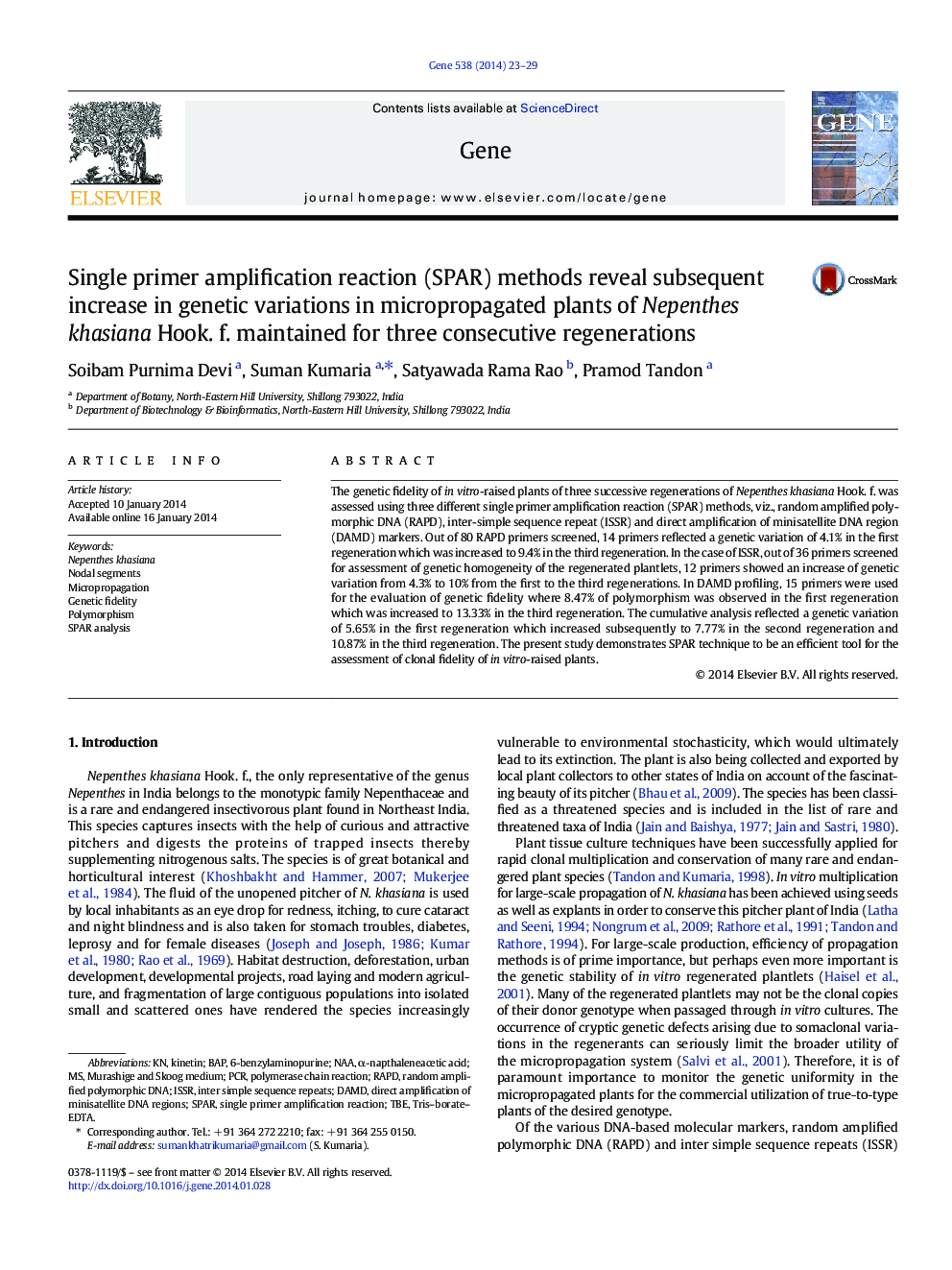| Article ID | Journal | Published Year | Pages | File Type |
|---|---|---|---|---|
| 2816586 | Gene | 2014 | 7 Pages |
•We assess the genetic stability of in vitro-raised plants of Nepenthes khasiana.•We observe genetic variations in in vitro-raised plants of N. khasiana.•Increase in culture duration increases genetic variations in the present study.•In vitro-raised plants are phenotypically normal.•Molecular data imply occurrence of genomic changes at non-coding regions.
The genetic fidelity of in vitro-raised plants of three successive regenerations of Nepenthes khasiana Hook. f. was assessed using three different single primer amplification reaction (SPAR) methods, viz., random amplified polymorphic DNA (RAPD), inter-simple sequence repeat (ISSR) and direct amplification of minisatellite DNA region (DAMD) markers. Out of 80 RAPD primers screened, 14 primers reflected a genetic variation of 4.1% in the first regeneration which was increased to 9.4% in the third regeneration. In the case of ISSR, out of 36 primers screened for assessment of genetic homogeneity of the regenerated plantlets, 12 primers showed an increase of genetic variation from 4.3% to 10% from the first to the third regenerations. In DAMD profiling, 15 primers were used for the evaluation of genetic fidelity where 8.47% of polymorphism was observed in the first regeneration which was increased to 13.33% in the third regeneration. The cumulative analysis reflected a genetic variation of 5.65% in the first regeneration which increased subsequently to 7.77% in the second regeneration and 10.87% in the third regeneration. The present study demonstrates SPAR technique to be an efficient tool for the assessment of clonal fidelity of in vitro-raised plants.
